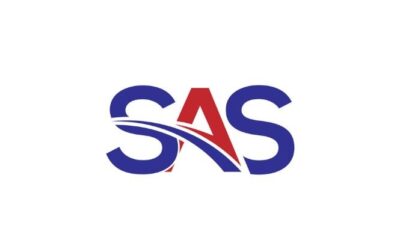Technology
Ericsson Consumer & IndustryLab: Flexibility and technology change how people work in Africa

- The research was carried out during 2022 within 5 markets in Africa across Egypt, Kenya, Morocco, Nigeria, and South Africa.
- 56 percent consider flexible work hours or locations as key requirements, and 19 percent say that flexibility is the top priority if they would start to look for a new job.
- 70 percent of employees and employers expect the share of total worktime carried out at home to increase by 2025.
A new report, Future of Work Life – Africa Edition, from Ericsson Consumer & IndustryLab examines how employees and employers in Africa navigate the current work environment and their views on the future of work shaped by the pandemic, digitalization, and the fluctuating labor market.
The way people spend their work hours has been the same for a long time. The pandemic has significantly impacted work life, and the changes it has sparked will impact how we work, view work, and use technology in the foreseeable future. Work has changed and will continue to change going forward.
Almost half (51 percent) of the employees in the study say that they enjoy increased flexibility at work. 56 percent consider flexible work hours or locations as key requirements, and 19 percent say that flexibility is the top priority if they would start to look for a new job. Doing work rather than going to work is seen as central in this new way of thinking about work life.
Employers should be aware that employees will approach the future of work differently and should endeavor to reconcile their needs with the company. To accomplish this, decision-makers must understand employees’ preferred paths, consider their input, communicate openly and consistently, and have an inclusive mindset when making decisions regarding the future of work.
Key findings:
- Flexibility is the new work life currency: Employees predict flexibility as a future employment need as hybrid work continues to be the norm as 56% of the working population in the surveyed markets consider flexible work hours or locations as key requirements.
- Digital technologies renew employee confidence: The share of employees who feel empowered by technology is significantly higher at 60% than those who feel overwhelmed at 41%.
- Decision-makers and employees are increasingly at odds over technology: Although businesses are aware of the benefits of digitization, only 3 out of 10 employees feel they have access to the necessary digital tools at work, and 6 out of 10 companies claim they have not set up the necessary technology for their employees.
- A more flexible work life requires visibility: 70 percent of employees and employers expect the share of total worktime carried out at home to increase by 2025.
- Five employee paths shape the future of work: Employees can be categorized in different paths, where they prioritize stability (22%), project-based work (22%), technology (21%), flexibility (19%), or career (15%).
“Based on our research, it is quite clear that the future of work is going to be increasingly dependent on ICT solutions such as high-speed, globally available mobile connectivity. We felt the pandemic could finally be seen in the rear-view mirror, and therefore wanted to take a closer look at what changes in peoples worklife had stuck, and what was only a temporary adjustment! My own favourite take-away is that remote work is clearly here to stay – maybe not exactly at the level as was measured during the pandemic, but still at significantly higher levels than before the pandemic!” Anders Erlandsson, Head of Ericsson IndustryLab
“Amidst the rapid digitalization brought on by the pandemic, our research highlights a concerning gap between the technology available in the workplace and the needs of employees for flexible working. With 6 in 10 companies lacking relevant technology for their staff, and just 3 in 10 employees feeling they have relevant tools at workplace there is a pressing need for organizations to invest in digital tools and robust connectivity that enable remote collaboration and flexibility, not only to attract and retain top talent, but also to stay competitive in the post-pandemic world.” Jasmeet Singh Sethi, Head of Ericsson ConsumerLab
The research was carried out during 2022 within 5 markets in Africa; 5,000 online surveys of employees across Egypt, Kenya, Morocco, Nigeria, and South Africa plus 600 online surveys of decision-makers and 11 in-depth interviews with decision-makers across Egypt, South Africa and Morocco.
ABOUT ERICSSON:
Ericsson enables communications service providers and enterprises to capture the full value of connectivity. The company’s portfolio spans the following business areas: Networks, Cloud Software and Services, Enterprise Wireless Solutions, Global Communications Platform, and Technologies and New Businesses. It is designed to help our customers go digital, increase efficiency and find new revenue streams. Ericsson’s innovation investments have delivered the benefits of mobility and mobile broadband to billions of people globally. Ericsson stock is listed on Nasdaq Stockholm and on Nasdaq New York. www.ericsson.com
Source – Ericsson
-

 Auto1 year ago
Auto1 year agoHonda Marine Debuts All-New BF350 Outboard Company’s First V8 Motor Available Commercially, Flagship Model Offers Premium Power and Unparalleled Performance for Extraordinary Boating Experiences
-

 Technology2 years ago
Technology2 years agoNew Global Study: 1 in 2 Executives Experiencing “Resiliency Gap”
-

 Lifestyle1 year ago
Lifestyle1 year ago2023 Nike World Basketball Festival Brings the Best of Basketball Style, Culture and Community
-

 Resources2 years ago
Resources2 years agoList Of Commercial Banks in Bahamas
-

 Auto1 year ago
Auto1 year agoNew Features Further Increase Desirability Of Bentayga Range


















